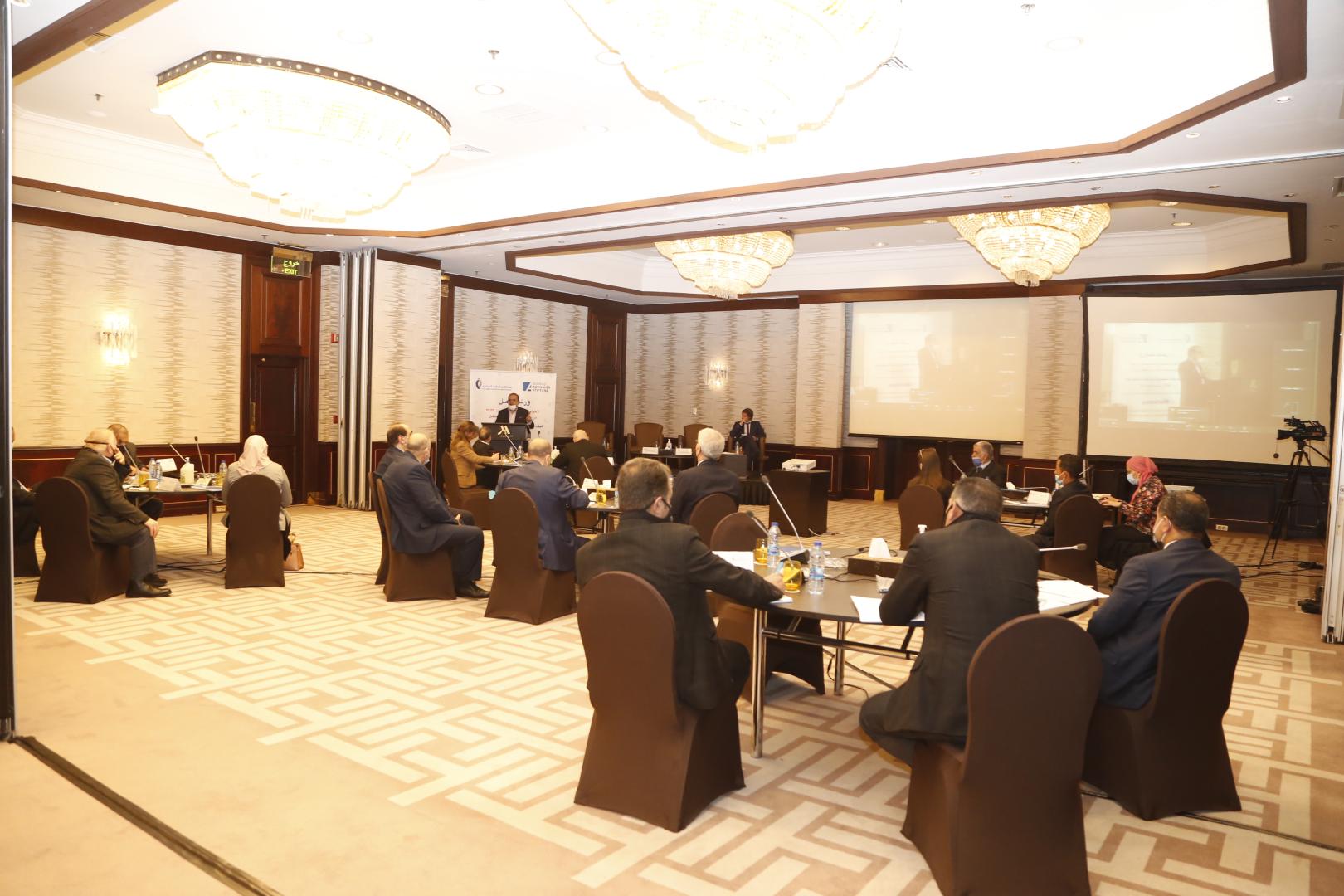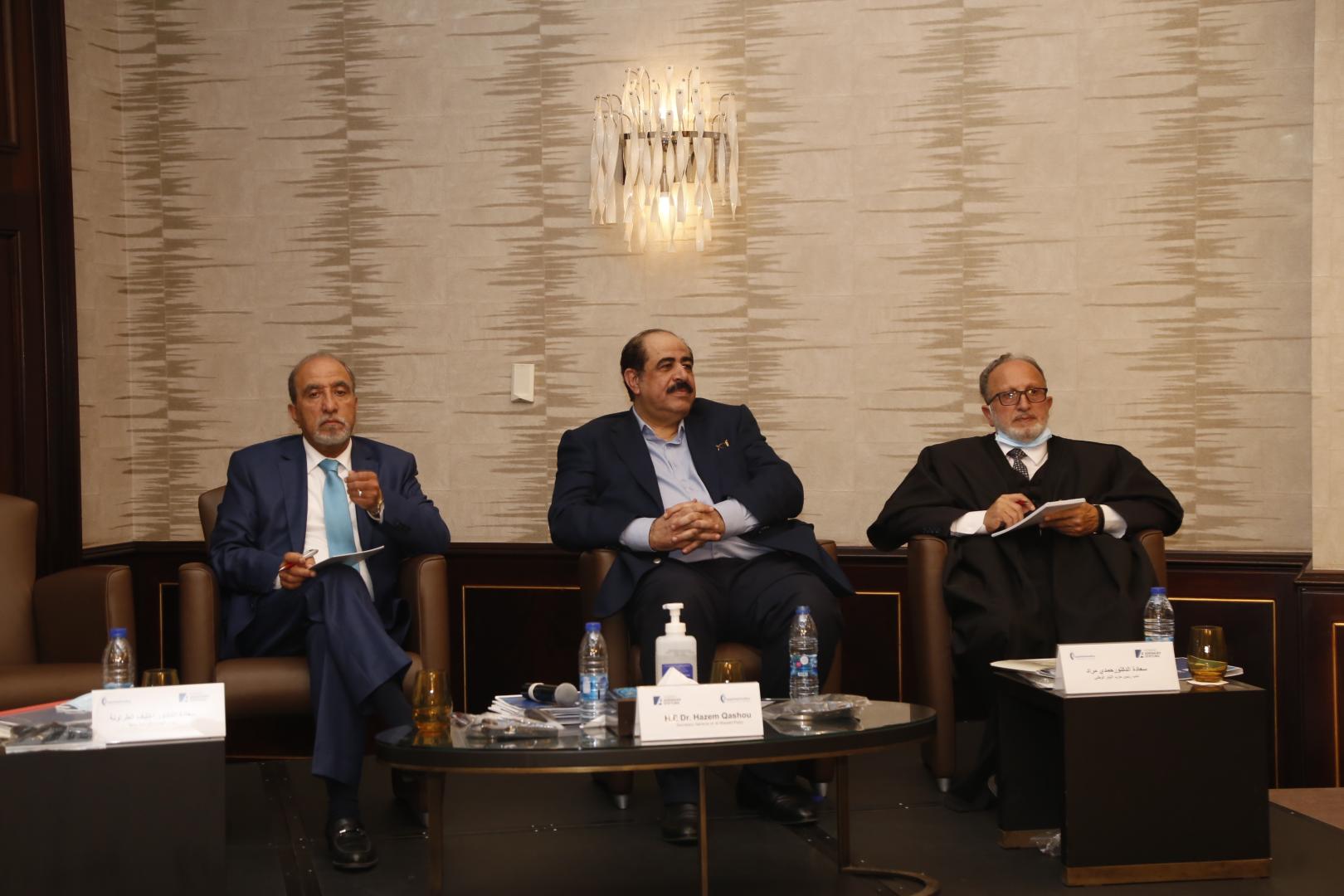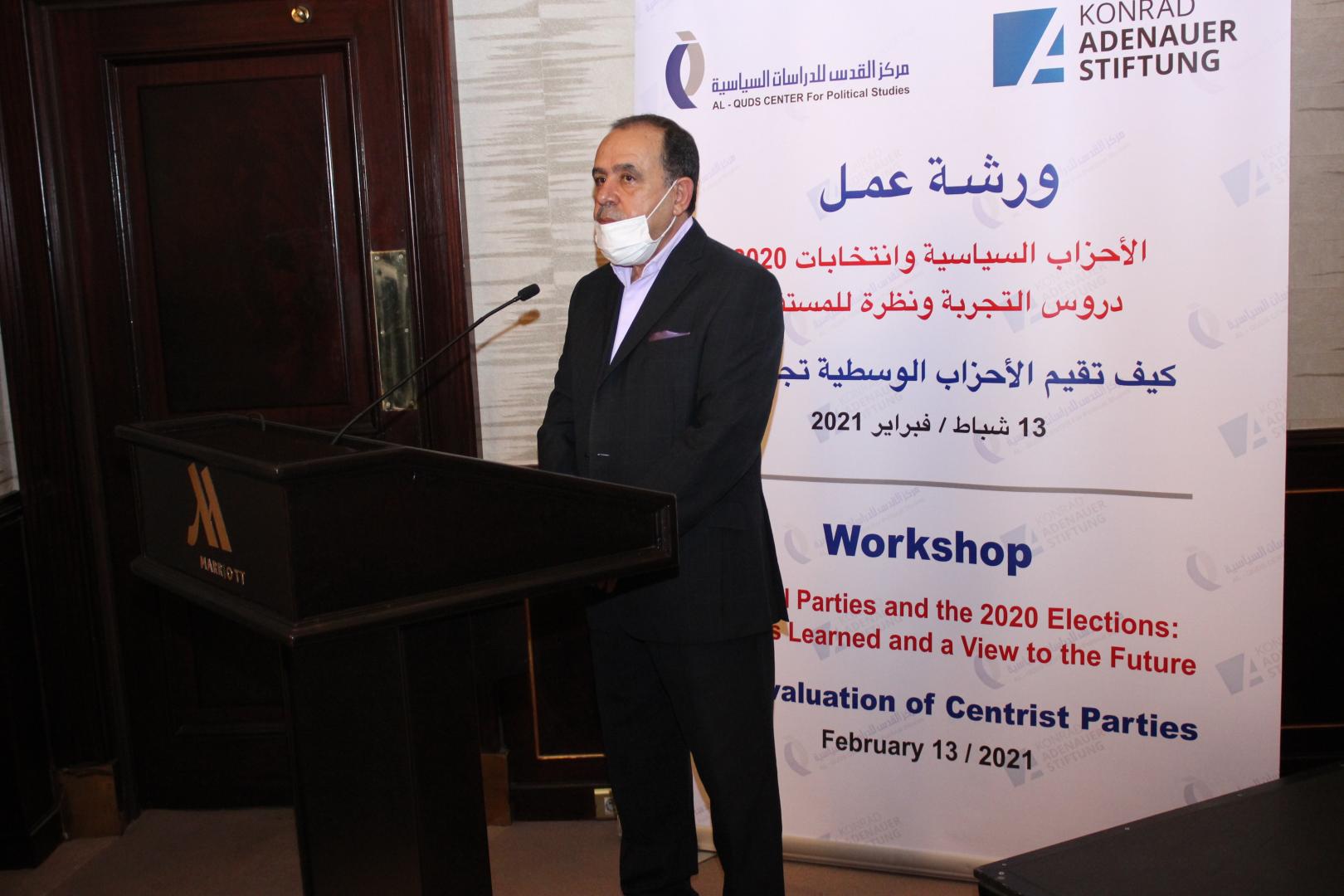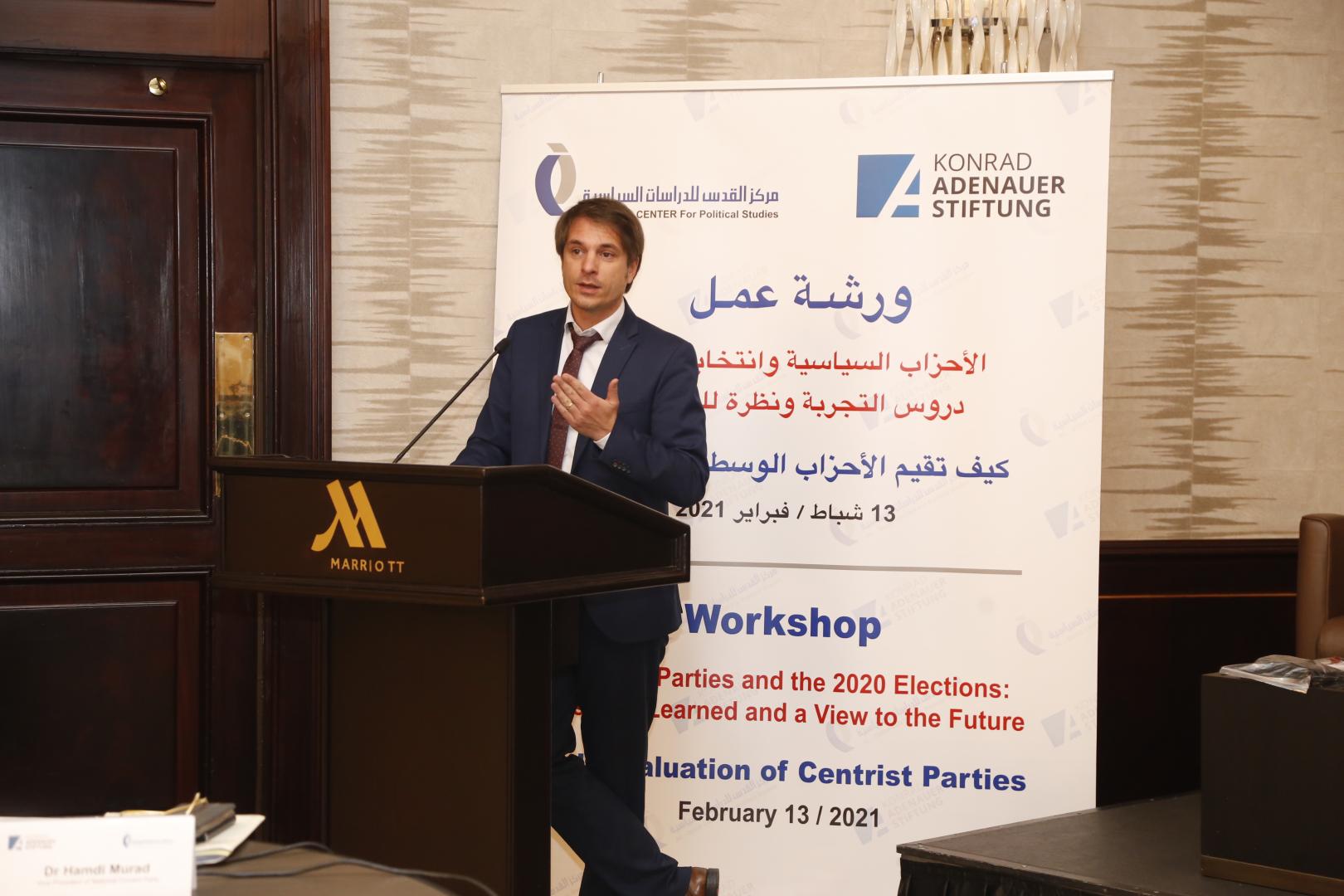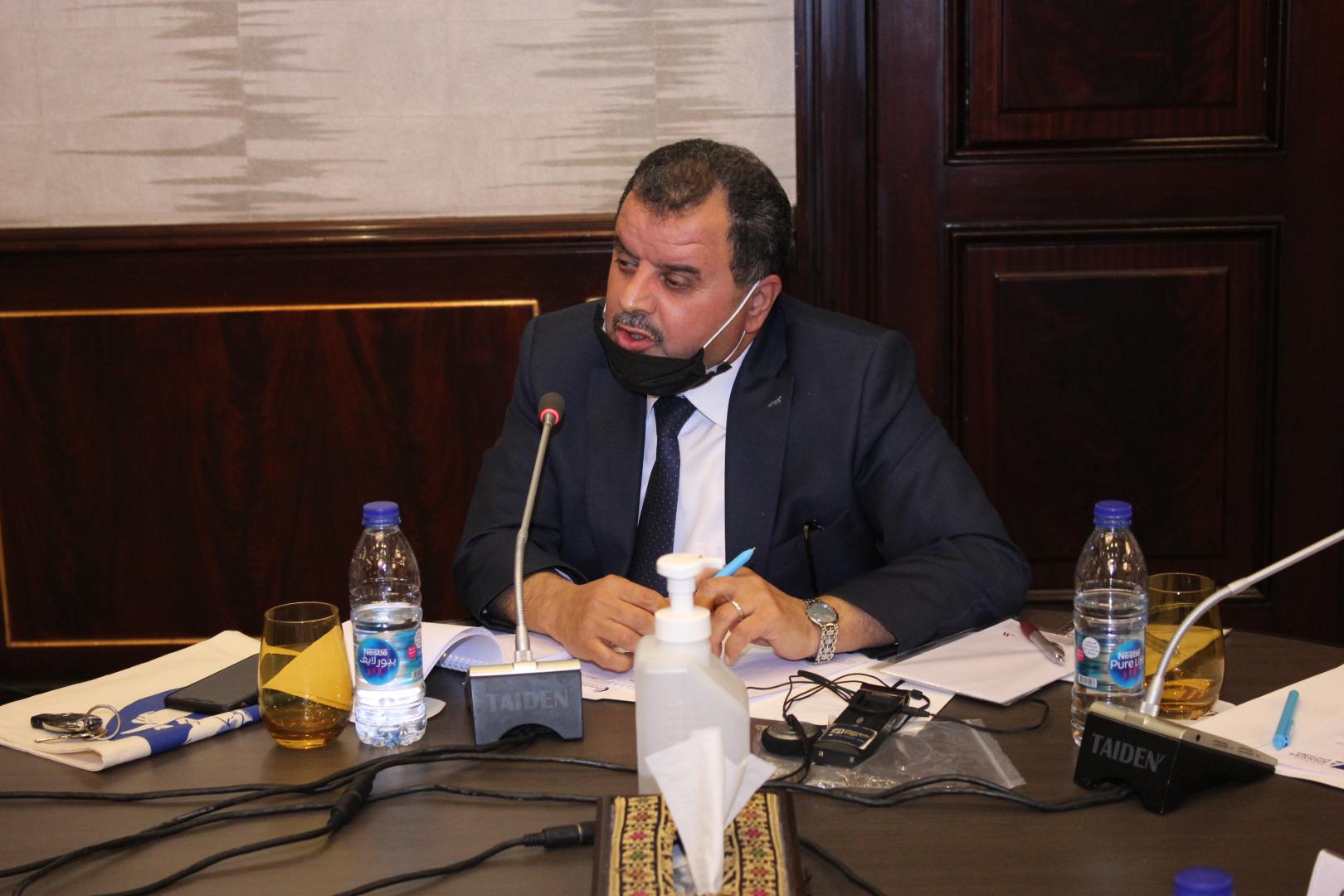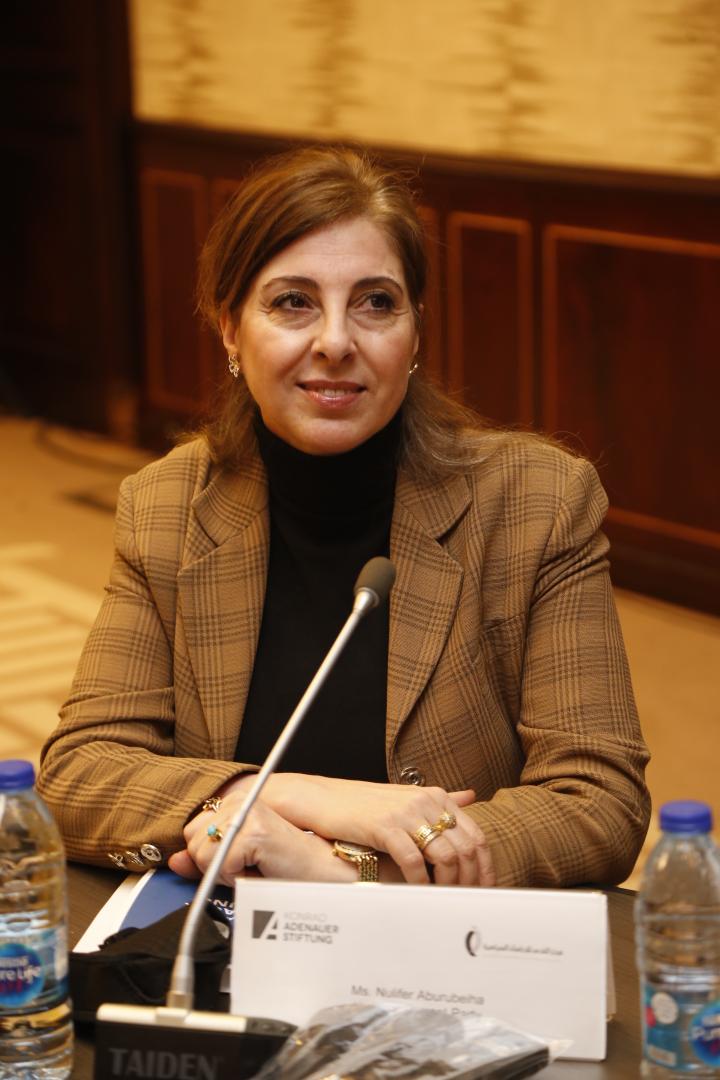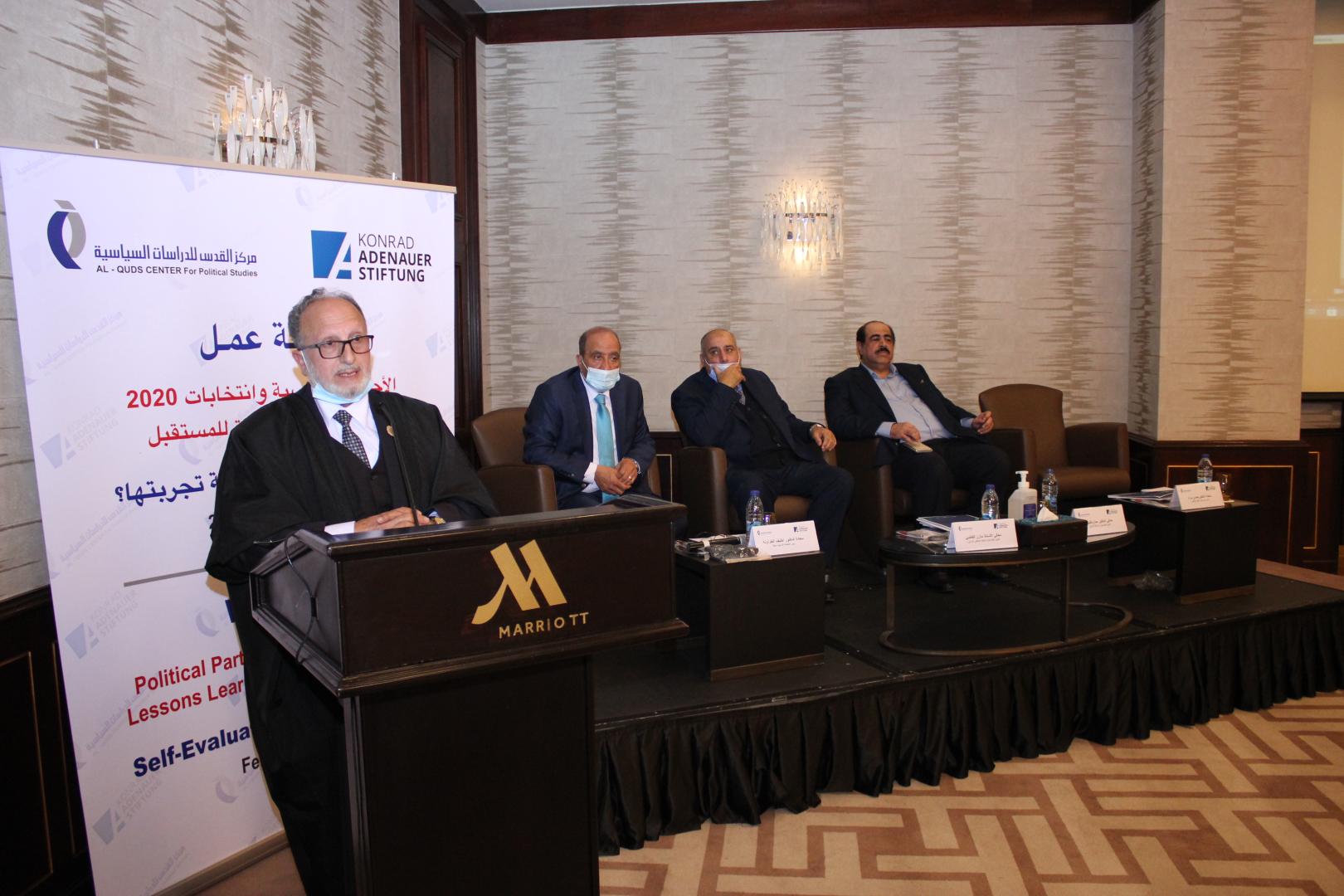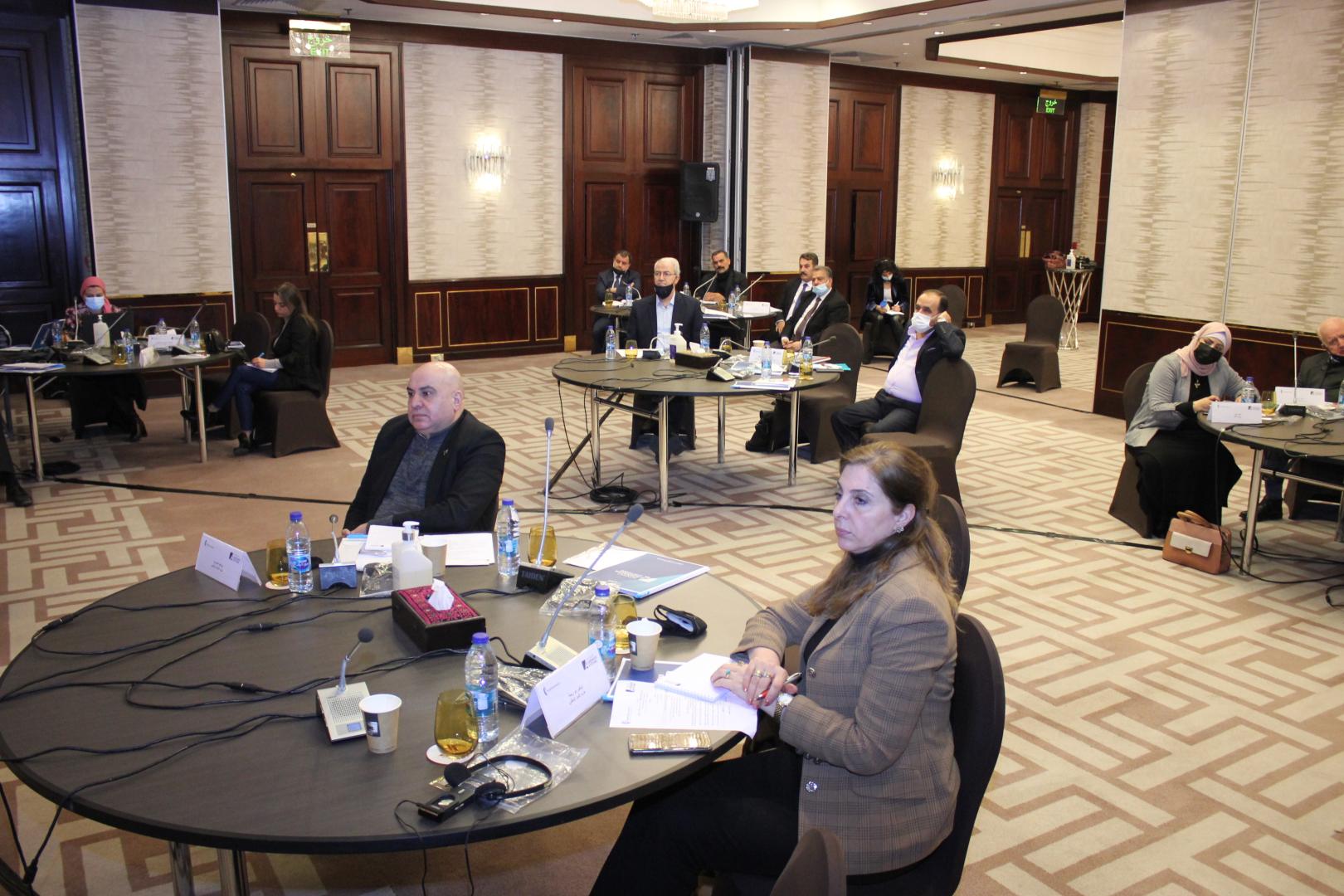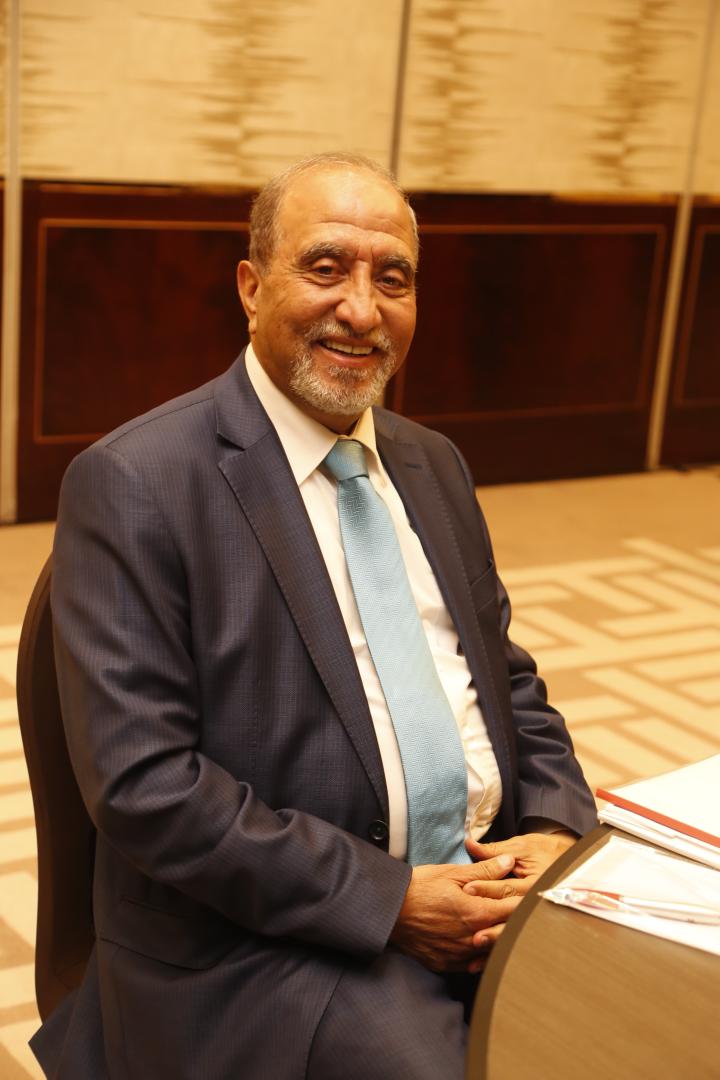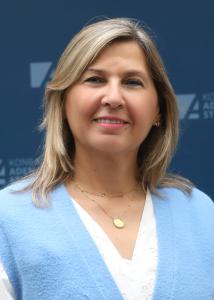The first workshop under the project “Political Party Capacity Building” took place last Saturday, 13th February 2021. Jointly organized with Al Quds Center for Political Studies, this workshop brought together centrist parties to transparently review their results and performance in the 2020 parliamentary elections. In his opening speech, Dr. Edmund Ratka, Resident Representative of the Konrad-Adenauer-Stiftung in Jordan, reiterated the commitment of the Foundation to an inclusive political process, where political parties have their role to play. The secretary generals of the Resala (“Message”) Party and the National Loyalty Party, H.E. Dr. Hazem Kashoua and H.E. Mr. Mazin Al-Qadi respectively as well as the Vice President of the National Movement Party, H.E. Dr. Hamdi Murad, were invited as speakers to share their parties’ election experience in the workshop. The three speakers, along with the workshop’s moderator, H.E. Dr. Akhleif Al-Tarawneh, former President of the University of Jordan, had an open discussion with the workshop’s participants on several important themes including centrist parties’ readiness to run for the 2020 elections; how the election lists were formed; the fairness with which parties chose their running candidates and how the election campaigns were funded. The workshop also gave the opportunity for centrist parties to examine how their own internal conditions impacted the results of the 2020 elections.
Director of Al-Quds Center, Mr. Oraib Al-Rantawi, described the 2020 election results as, “horrific” because “even the influential parties lost half of their voting power while other parties including the nationalist, leftist and centrist currents’ voting rates were very low”. H.E. Dr. Al-Tarawneh also expressed concern for the decline in party work today which for many citizens has become a “waste of time”. Some participants blamed the confining Jordanian election and party laws for the abysmal results and stressed the need to introduce proposals for drafting new election laws. According to Tarawneh, “No real reforms no real reform can be achieved without a more representative and fair election law." However, some were critical of the parties’ inabilities to reach the Jordanian street, internal conflicts within parties and the still-existing taboos surrounding political parties as having negatively affected the elections. The general consensus reached in the workshop is that it is highly imperative to introduce internal party reforms such as higher youth and women inclusion and providing more opportunities for different party members to run for top leadership positions and offer newer and fresher ideas.
Two subsequent workshops are set to take place within the next two weeks which will focus on the 2020 election experience of other Jordanian parties.


